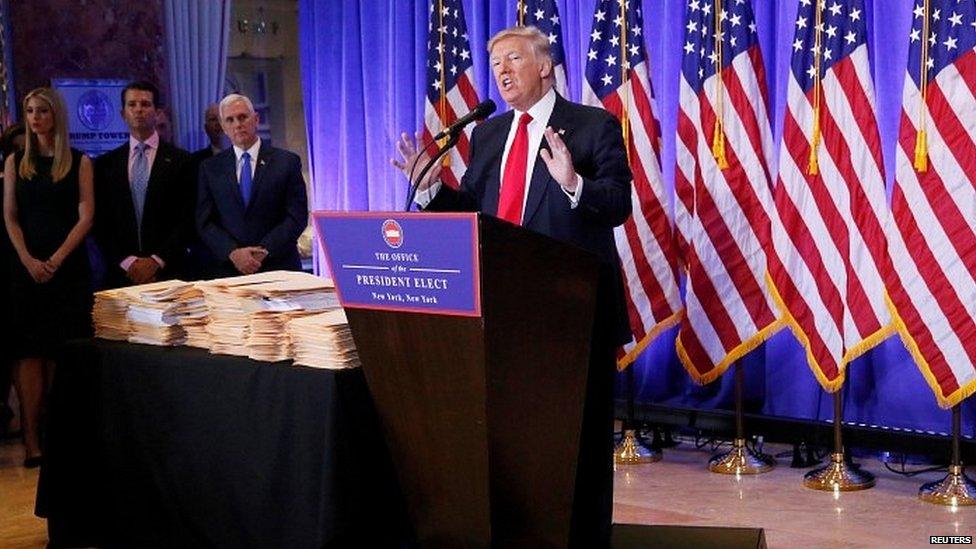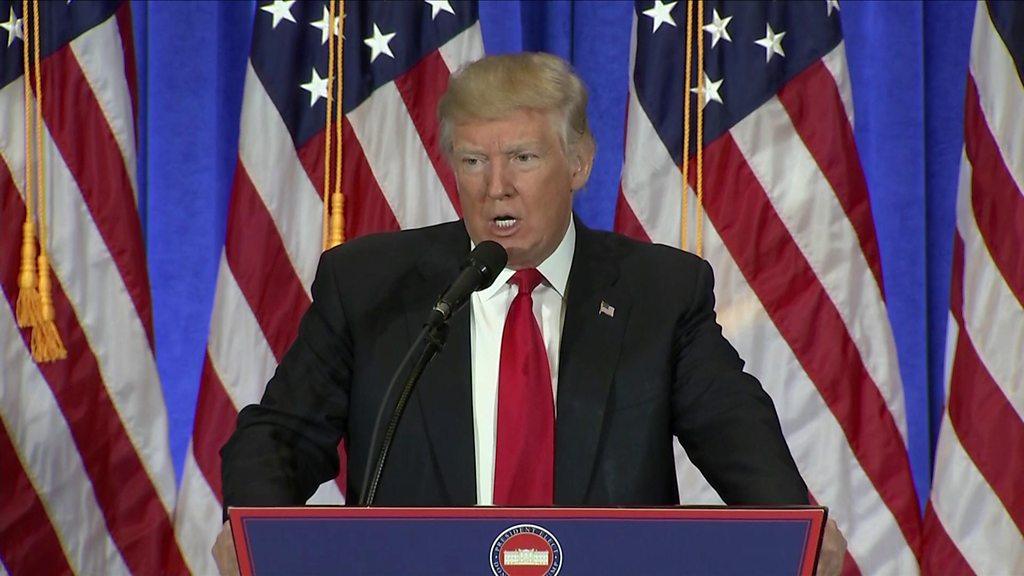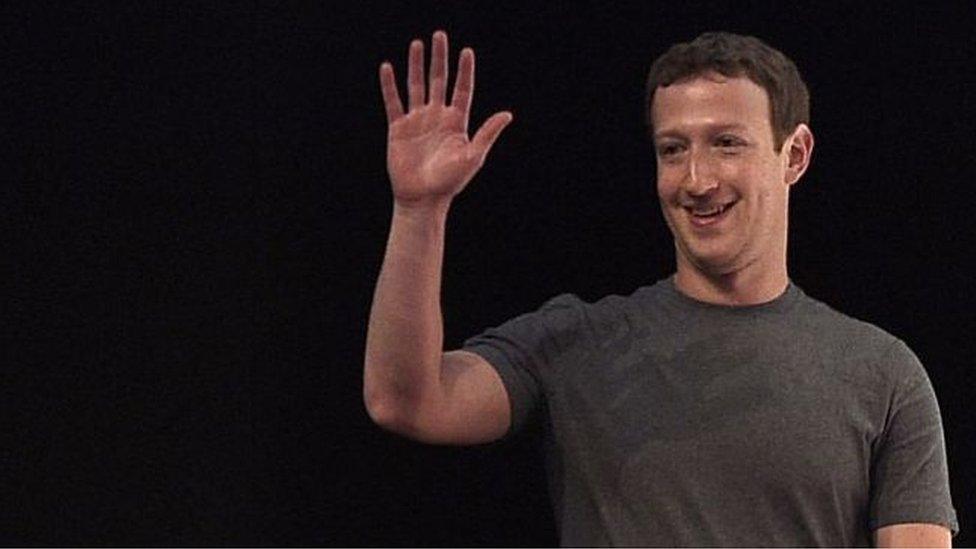Fake news poses threat to British politics warns Labour
- Published

The row over the Trump dossier has triggered a debate about journalistic practices in the US
British politics risks being "infected by the contagion" of fake news stories, a senior Labour MP has said.
Michael Dugher said the problem was not confined to the US and news outlets everywhere had a duty to scrutinise politicians on the basis of "truth and reality" not "click-bait nonsense".
Labour, he said, must be "vigilant" to the threat of false information coming from the left as well as the right.
It comes amid a row over the release of unverified claims about Donald Trump.
The US President-elect has dismissed a dossier containing claims about his private life and relationship with Russia as a "disgrace" and described Buzzfeed - which published the document in full - as a "failing pile of garbage".
Buzzfeed has acknowledged the allegations were unverified and potentially unverifiable but justified its reporting, saying the claims had "circulated at the highest levels of government" and the public should make up their minds about their veracity.
Mr Trump also attacked CNN, which reported that intelligence chiefs had presented a synopsis of the dossier - said to have been compiled by a former British Secret Service agent - to President Barack Obama.
The phenomenon of fake news - which came to the fore during the US presidential election - has triggered a debate about journalistic ethics in the US.
'Voracious'
Mr Dugher, a former shadow culture secretary, said it was an issue that British journalists - whether they work for social media, campaigning websites or more traditional news outlets - could not ignore.
"The global scale of the problem with fake news is clear," he told the Guardian., external
"Even someone with views as grimly unpalatable as Trump deserves to be scrutinised on the basis of truth and reality - not on fake news."
Mr Dugher has been asked by deputy leader Tom Watson to examine the changing way that news is consumed and shared online and at the "practical, political and ethical issues" raised by fake news - with a report due in the spring.
He suggested the dominance of tech giants like Facebook and Google over the dissemination of information online was as big a challenge to media plurality as the power of established broadcasters and newspaper publishers on other platforms.
But he said there was also a duty on "mainstream" news providers not to fan the flames of the problem and resist the temptation to publish sensational but unverified material in a "voracious quest for web traffic".
He added: "We in the Labour Party, who have so often been on the wrong side of misrepresentations and unfair attacks from the right wing media, also have a responsibility to be vigilant and reject fake news material on social media and elsewhere - even if it purports to come from the left."
Speaking on Thursday, the BBC's director of news and current affairs James Harding said the organisation had to a duty to call out "deliberately misleading stories masquerading as news" .
He said the BBC would be expanding its Reality Check service dedicated to scrutinising the statistics and arguments used by parties and interest groups.
"The BBC can't edit the internet, but we won't stand aside either," he said. "We will fact check the most popular outliers on Facebook, Instagram and other social media. We are working with Facebook, in particular, to see how we can be most effective."
- Published11 January 2017

- Published12 January 2017
- Published15 December 2016
